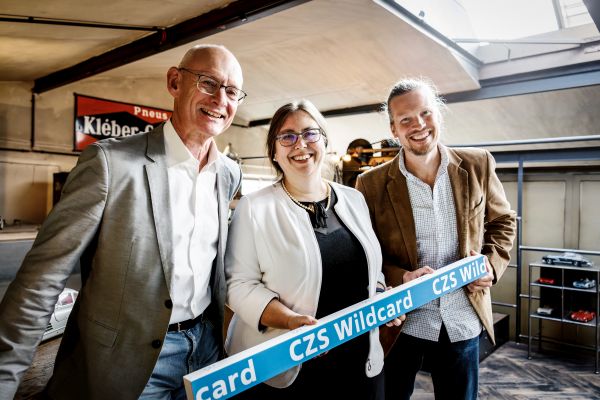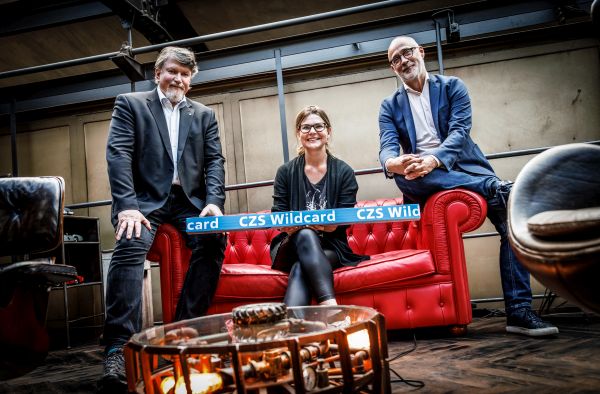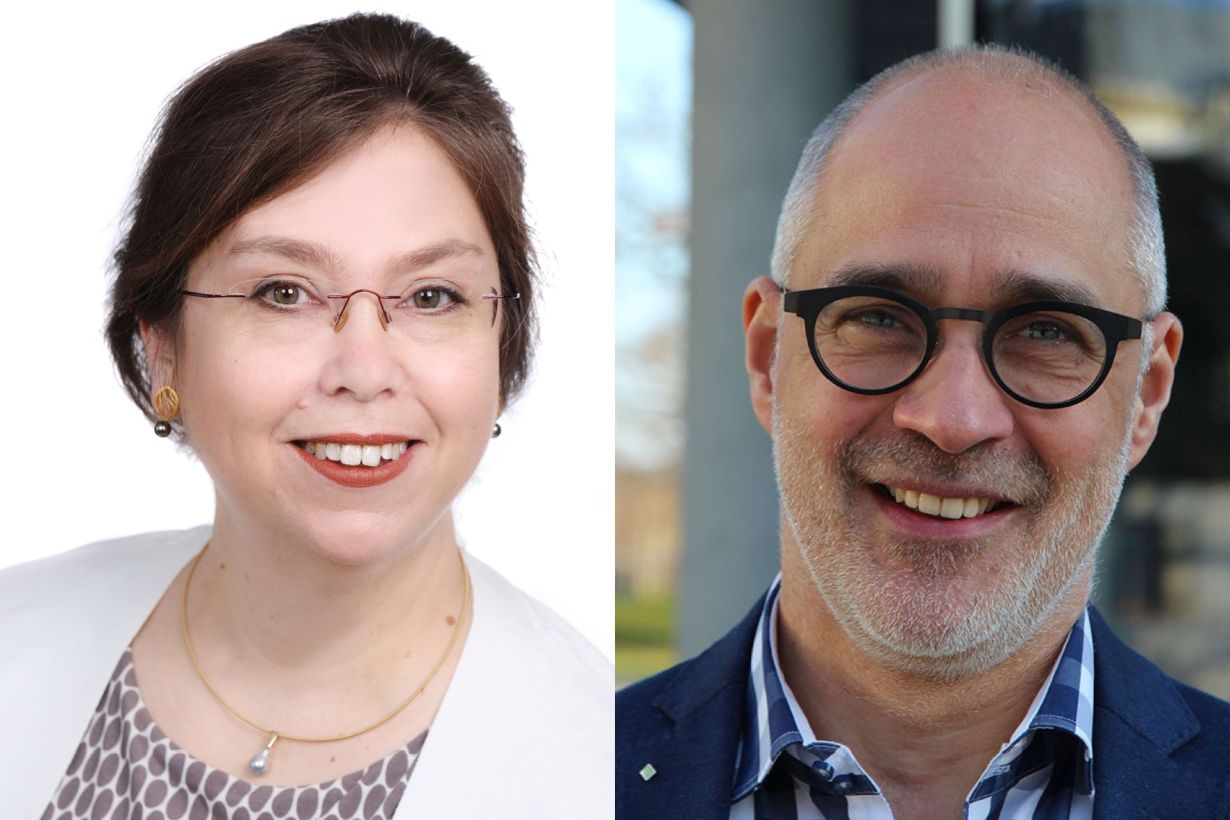Researchers from the Karlsruhe Institute of Technology (KIT) have received grants from the Carl Zeiss Foundation’s CZS Wildcard program. In her project entitled UCART, physics professor Anke-Susanne Müller is working on a new radiation therapy method for directly irradiating tumors in the patient’s body with an electron accelerator. Electrobiotechnology professor Dirk Holtmann aims to develop a process for converting CO2 into useful chemicals in his CoMet2 project. With its Wildcard program, the Carl Zeiss Foundation (CZS) supports unconventional research projects with EUR 900,000 each for a period of two years.
“To find solutions to society’s most pressing problems, we researchers have to break completely new ground time and again, which is exactly what the bold and pioneering projects headed by Anke-Susanne Müller and Dirk Holtmann are doing. We’re pleased that they can implement their projects with the CZS Wildcard program,” said Professor Oliver Kraft, Vice President for Research at KIT.
UCART: Radiation Therapy Directly in the Body
The objective of the UCART (ultracompact electron accelerators for internal radiotherapy) project is to develop a (sub)millimeter-sized electron accelerator for endoscopic insertion into the body. This will enable direct and extremely precise irradiation inside the body, without damaging healthy tissue. “This is a new approach in radiation therapy,” said Professor Anke-Susanne Müller from KIT’s Institute for Beam Physics and Technology (IBPT). Müller is conducting the project with Professor Matthias Fuchs from the IBPT and Professor Oliver Jäkel from the German Cancer Research Center (DKFZ).
Current treatments for internal tumors usually rely on irradiation by external sources, which can also harm healthy tissue. Moreover, the possibilities for improving existing irradiation equipment are mostly exhausted. In the UCART project, an interdisciplinary team of laser, accelerator and medical physicists aims to exploit a physical effect that can be used with new light-driven mechanisms for electron acceleration to reduce the size of accelerators more than a thousandfold. According to Müller, the main overall objective is to produce economical, ultracompact radiation therapy devices that can be operated like X-ray machines and would be available in many medical facilities.

Prof. Oliver Jäkel (DKFZ), Prof. Anke-Susanne Müller (KIT), Prof. Matthias Fuchs (KIT).
(Photo: Carl Zeiss Foundation)
CoMet2: 200% Reactor for Efficient Chemical Production
“In view of rising CO2 emissions, the exhaustion of fossil fuels and the transition to renewable energy sources, we urgently need new and efficient processes for producing chemicals such as pharmaceuticals or biofuels,” said Professor Dirk Holtmann from KIT’s Institute of Process Engineering in Life Sciences. Holtmann is the spokesperson for the CoMet2 (co-cultivation of anaerobic methanogens with aerobic methanotrophs in a bio-electrochemical 200% cell) project, which is being run jointly with the University of Kaiserslautern-Landau (RPTU).
Researchers in microbiology, bioinformatics, bioengineering and electrochemical process engineering aim to develop an “electrobiotechnological 200% reactor” using microbial electrosynthesis (MES), a promising technology with which microorganisms produce chemicals from CO2 and electricity with energy efficiency exceeding 80 percent. With the CoMet2 reactor design, the researchers expect to produce useful products at both the cathode and the anode. In conventional electrochemical systems, useful products usually form at only one electrode.

From left: Prof. Roland Ulber (RPTU), Prof. Anne Kaster (KIT), Prof. Dirk Holtmann (KIT).
(Photo: Carl Zeiss Foundation)
The CZS Wildcard Program
The Carl Zeiss Foundation is committed to creating settings that foster scientific breakthroughs. As a partner for first-class science, it supports both basic research and application-oriented research and teaching in the STEM subjects (science, technology, engineering and mathematics). The CZS Wildcard program supports research ideas at a very early stage in their development. During the selection process, projects are assessed for their originality, unconventionality and potential.
See the Carl Zeiss Foundation’s website for more information about the CZS Wildcard program.
Being “The University in the Helmholtz Association”, KIT creates and imparts knowledge for the society and the environment. It is the objective to make significant contributions to the global challenges in the fields of energy, mobility, and information. For this, about 10,000 employees cooperate in a broad range of disciplines in natural sciences, engineering sciences, economics, and the humanities and social sciences. KIT prepares its 22,800 students for responsible tasks in society, industry, and science by offering research-based study programs. Innovation efforts at KIT build a bridge between important scientific findings and their application for the benefit of society, economic prosperity, and the preservation of our natural basis of life. KIT is one of the German universities of excellence.

